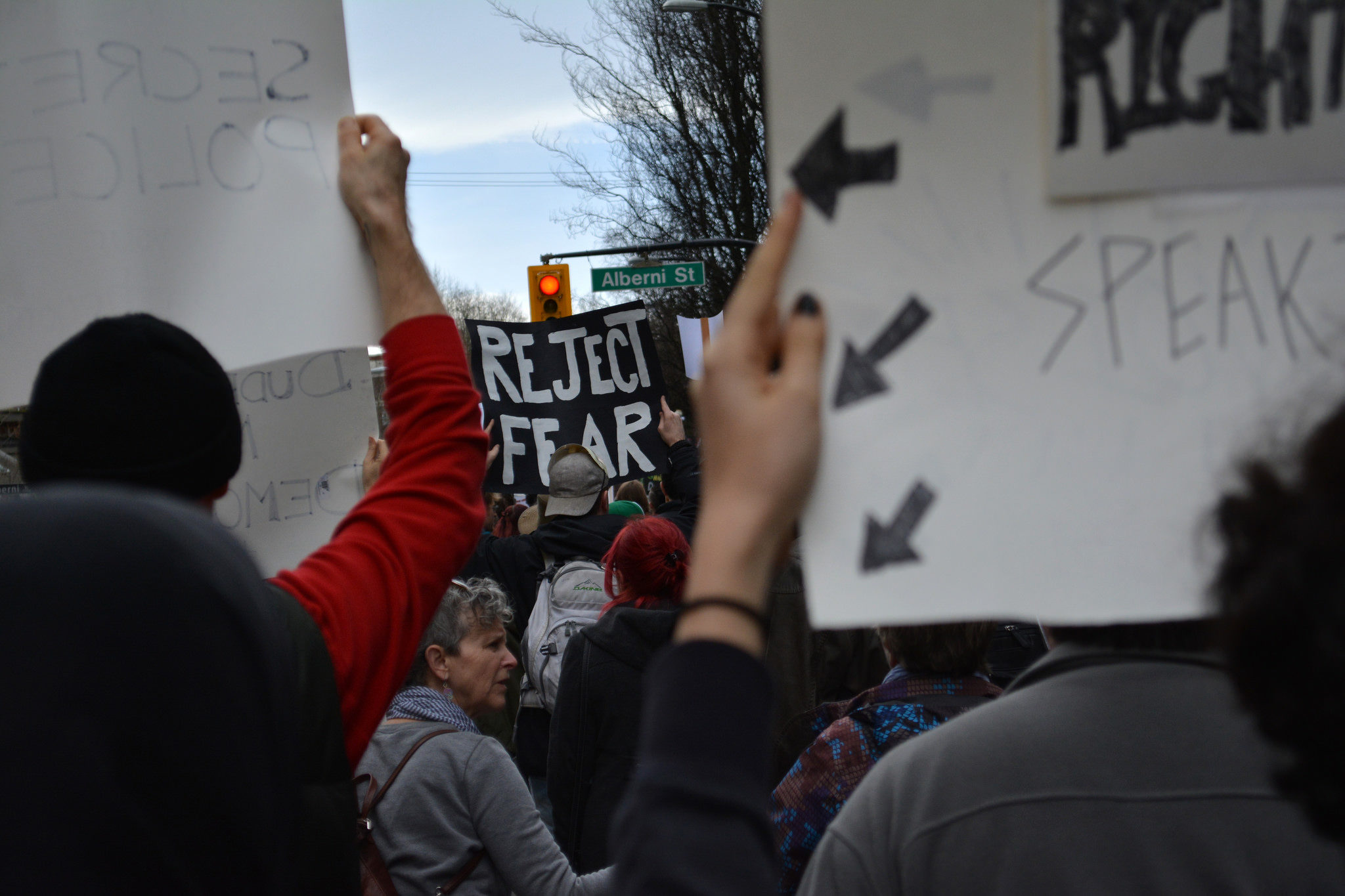Journalists need to fight to repeal Bill C-51
CJFE volunteer Grant Buckler explains why provisions in the counter-terrorism bill should be of major concern to the news media
By Grant Buckler
Bill C-51, the counter-terrorism legislation passed by the previous Conservative government, remains unchanged despite Liberal promises to amend it if they came to power. That raises concerns for all Canadians, and some particular worries for journalists.
One of the law’s provisions allows the government to “order the removal of terrorist propaganda” from the web. A judicial order and the support of the attorney-general would be required, but there is no clear definition of what might constitute terrorist propaganda. Might that include reporting on a terrorist group, publishing an interview (as Vice News did in 2014) with a known ISIS fighter, or even linking from a news report to a video posted by a terrorist organization?
A media outlet could be ordered to take down content posted as part of its reporting, “even if you’re condemning the material in question,” Duncan Pike, campaigns and advocacy co-ordinator for Canadian Journalists for Free Expression, told J-Source. That risk might lead to self-censorship, particularly for smaller independent media outlets, though even major media organizations could be affected.
A related provision makes it an offence to advocate or promote terrorism in general. Some will of course ask why we would want to let anyone advocate or promote terrorism—but what is terrorism, and what is advocating or promoting it?
Who is a terrorist? Describe ISIS as a terrorist group and it’s unlikely anyone will argue with you. What about Ukrainians fighting Russian-backed rebels? Stephen Harper wouldn’t call them terrorists, nor would many Canadians, but Vladimir Putin would.
Jason Kenney, then Minister of Defence, spoke at a Toronto picnic organized by Democratic Kurdish Youth Commission in August 2015. The Democratic Kurdish Youth Commission publicly supports the Kurdistan Workers’ Party (PKK) – which the government of Turkey, a member of NATO and ally of Canada, considers a terrorist organization. Kenney is not generally thought of as a friend of terrorists, and many people would question labelling the PKK as a terrorist group, but this illustrates how quickly these things can get murky.
Is publishing a statement made by someone connected with a designated terrorist group promoting that group? Might an opinion piece strongly condemning a government policy that a terrorist group has also criticized be considered to be advocating for that group?
“That’s a totally subjective thing — and it could lead to up to five years in prison,” Pike said.
A third concern for journalists is the way the legislation allows government departments to share private information. This should concern everyone—as should the other provisions above, for that matter—but has particular importance for those in the news media. If the government of the day doesn’t like a certain reporter’s work, that may lead to personal information, such having sought treatment for mental illness, being made public or otherwise used against the person. Does that seem farfetched? Not so long ago, staff at Veterans Affairs Canada shared information from the medical records of at least two veterans’ advocates and included them in ministers’ briefing notes.
The Liberals voted for Bill C-51 while in opposition but promised to amend it if elected. After they were elected they said they would hold consultations before revising the law. The consultations haven’t started yet. The last few months have seen several terrorist attacks in Europe and the United States, so it’s not hard to see why politicians might feel this isn’t an auspicious time to tone down counter-terrorism laws. But if not now, when?
The Canadian Civil Liberties Association (CCLA) and CJFE launched a legal challenge of the new legislation under the Charter of Rights before the present government came to power. After the election there seemed to be some hope that a court decision on this challenge might not be necessary to secure the changes we need. That hope seems to be fading. CJFE is now gathering signatures on a petition to kill the bill. The court challenge is awaiting the government’s response.
[[{“fid”:”6393″,”view_mode”:”default”,”fields”:{“format”:”default”,”field_file_image_alt_text[und][0][value]”:””,”field_file_image_title_text[und][0][value]”:””},”type”:”media”,”link_text”:null,”attributes”:{“height”:556,”width”:368,”style”:”width: 100px; height: 151px; margin-left: 5px; margin-right: 5px; float: left;”,”class”:”media-element file-default”}}]]Grant Buckler is a retired freelance journalist and a volunteer with Canadian Journalists for Free Expression and lives in Kingston, Ont.Grant Buckler is a retired freelance journalist and a volunteer with Canadian Journalists for Free Expression and lives in Kingston, Ont.

